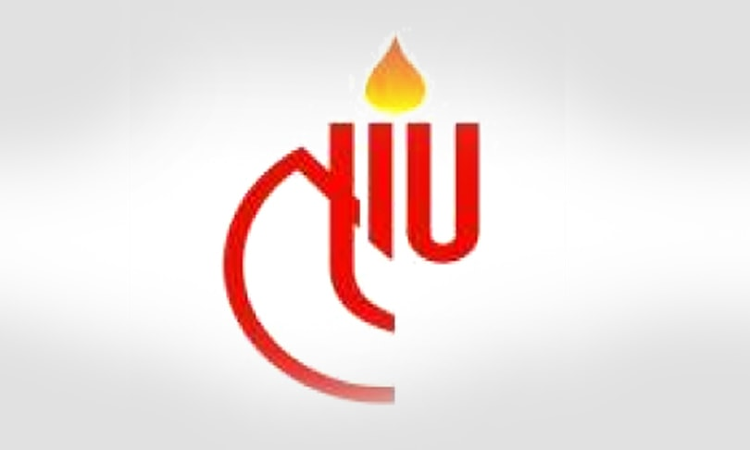[Live Updates] : 5th NLIU Justice R. K. Tankha Memorial International Arbitration Moot Court Competition
LIVELAW NEWS NETWORK
21 Feb 2020 3:02 PM IST

NLIU BHOPAL
The NLIU Justice R.K. Tankha Memorial International Arbitration Moot 2020 Live Updates.
Live Updates
- 23 Feb 2020 2:54 PM IST
The final rounds have begun! Before we begin, let us give you a few details of the round:
Judges-
Hon'ble Justice (Mrs.) Gyan Sudha Misra
Ms. Shwetha Bidhuri
Majour General Nilendra Kumar
Prof. (Dr.) Surya Prakash
Mr. Sourabh Suman Sinha
Claimant:
Team code: TC2
University: ILS Pune
Speakers:
Tapan Radkar, Advait Helekar
Researchers:
Monica Bagwe, Trishalaa Shetty
Respondents:
Team code: TC8
University RMLNLU
Speakers:
Kaustubh Srivastava
Siddhant Ahuja
Researchers:
Devansh Rathi
Ravi Shankar Pandey
- 23 Feb 2020 1:19 PM IST
With this, the semi-finals have come to an end. The results will be announced shortly but before that,
A lecture on Careers in Litigation is being organised jointly by the Moot Court Association, the Placement Coordination Committee and the Legal Aid Clinic. The speaker for the lecture is Mr. Prateek Mishra. He graduated from NLIU in 2013. He did his LLM from Queen Mary, University of London in 2014. Presently he is a Managing Associate at L&L Partners.
Mr. Saurabh Suman Sinha may also join us for the lecture, he graduated from NLIU in 2005 and is an Advocate in the Supreme Court. He has over 15 years of experience in litigation.
The lecture would be followed by the finals.
- 23 Feb 2020 12:38 PM IST
Court room 2
Respondent speaker 2 began with a factual argument that was not bought by the judges. He then proceeded with the second prong wherein he cited a foreign case that was not held to be applicable by the Judges. The speaker moved on to the next issue. He put forth a legal argument related to the security and was flooded with questions on it. The judges bought the answers and asked the speaker to quickly summarize the last issue due to the paucity of time.
- 23 Feb 2020 12:12 PM IST
Court room 2
Claimant speaker 2 argued that third party funding agreement is not necessarily required to be disclosed. The case cited in support of this assertion was not found to be applicable by the judges. Ms. Prasad asked a factual question to which the speaker gave a contradictory answer, and was asked to carry on. Mr. Mishra asked about the binding value of ICSID rulings. The speaker cited a case to answer the same, the judges seemed satisfied with the answer and the speaker proceeded with the next issue. Ms. Prasad interrupted the speaker by asking a question related to tariffs. The speaker said that he's not aware, and was asked to carry on with the submissions. Due to the paucity of time, the speaker summarized the last issue without any questions being posed to him
- 23 Feb 2020 12:11 PM IST
Court Room- 1
Aishwarya A. on behalf of respondents is now presenting her arguments on the procedural issues. She asserts that the arbitrators have the power to order the disclosure of third party funding. Further she submits that there shall be an order for security of legal costs, to which the judges seek an answer as to what necessitates such an order.
- 23 Feb 2020 11:44 AM ISTCourt room 2: Claimant speaker 1 began by responding to the contention related to the consent made by the respondent's speaker 1. He cited supporting facts while contending that the consent was in fact present. Mr. Mishra pointed out a contrary fact and asked a question, to which the speaker couldn't give a satisfactory answer and was asked to proceed. Ms. Prasad asked a question on intent, in response to which the speaker cited a case law. The judges didn't seem to buy the answer and asked the speaker to proceed with the next issue. The judges asked the first speaker to quickly summarize the second issue and the second speaker then began with the merits of the case.
- 23 Feb 2020 11:31 AM IST
Court room 1:
After the arguments from the first counsel on behalf of the respondents, counsel for claimant, Kaustabh Srivastava has proceeded with his arguments. In addition to addressing the concerns of the respondents, he argues that the clause is not pathological in nature. With the judges raising some significant questions, the counsel tries his best to answer them effectively.


